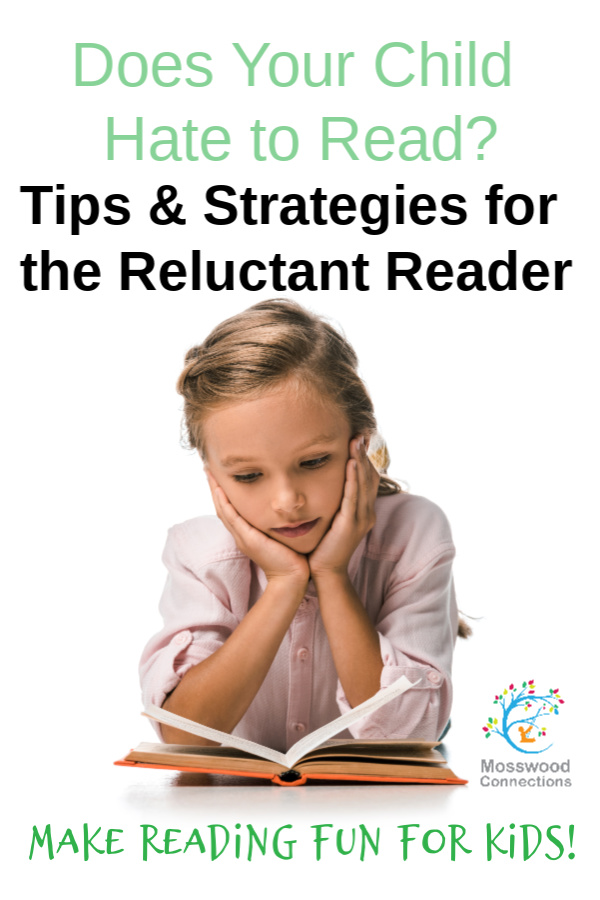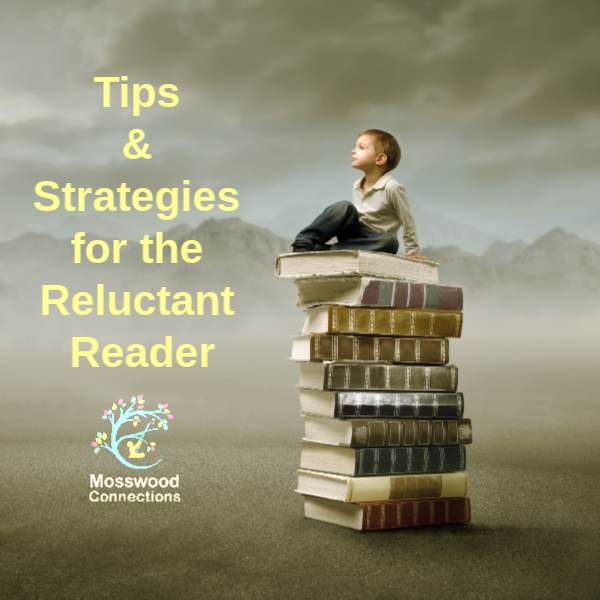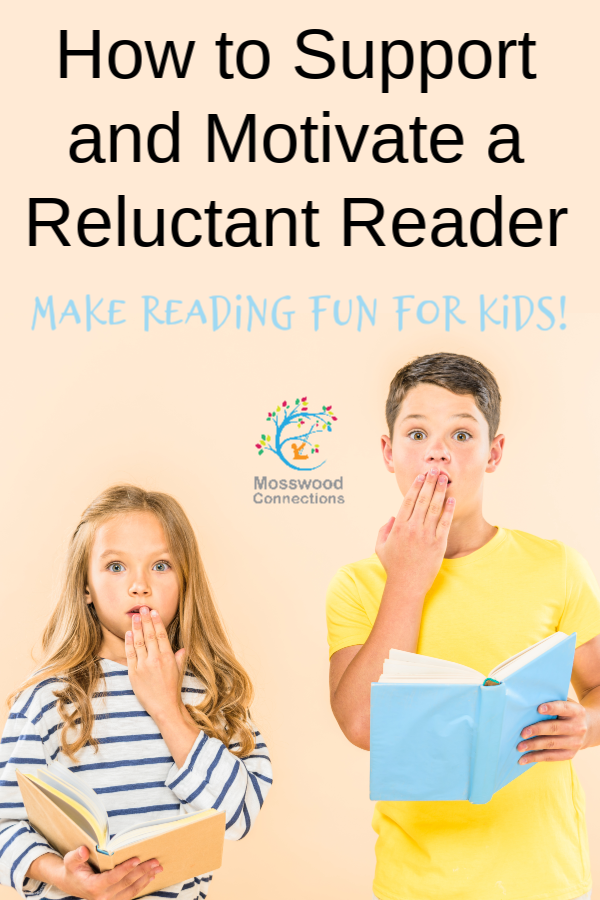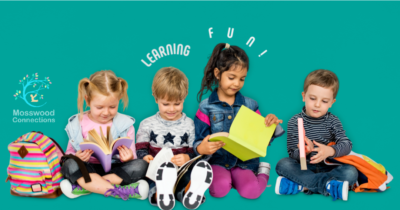How to Support and Motivate a Reluctant Reader
We hope to instill a love of reading in all children.
"When I say to a parent, "read to a child", I don't want it to sound like medicine. I want it to sound like chocolate. " — Mem Fox
Do you have a reluctant reader? We see children every day who would rather do just about anything to avoid picking up a book to read. Bright intelligent children who can excel in many ways can struggle with reading and it can be quite a challenge to get them to read a book.
It is important to identify why a child is resisting reading or struggling to get to the next reading level. Most of the time the reluctant readers we see have underlying issues with visual processing and auditory processing. When my daughter was in kindergarten my daughter demonstrated that she was able to read, but she wasn't moving from reading picture books to reading beginning chapter books. We took her to a developmental ophthalmologist and discovered that she was having issues with convergence. We were given some simple eye exercises to do and within months her reading progress was back on track.
Our daughter had a relatively easy problem that we could fix but for other children, it can be more complicated. Keep reading for more strategies to help the reluctant reader!
This page contains affiliate links. Please visit our disclosure page for more information.

How to Identify if Your Child May be a Reluctant Reader
Children will show us fairly early on whether they have an innate love of books or if it is something that needs to be encouraged. By now, you most probably have heard the advice to read to your children starting at a young age. We read to our children starting from birth. But sometimes that isn't enough. It is important to first figure out if your child is a reluctant reader and to address the underlying reasons.
Some signs that a child is not enjoying reading:
- They show complete disinterest in books.
- They exhibit silly behavior to distract when you try to read with them.
- They run away when you try to read.
- They can't sit still long enough to finish reading a page, much less the whole book.
- Their attention constantly wanders from the book.
- They are unwilling or unable to participate in talking about the book.

Building Reading Skills from the Beginning
- Start by making reading part of a child's daily routine. We always had reading time before bedtime and we continued this habit until our child was twelve years old.
- Have plenty of books available for the child to choose from.
- Model reading for pleasure; even if it's the newspaper or a magazine, children will notice if you read or not.
- If your child can't sit still that's okay. I have spent many hours reading to a dancing, wiggly child. As long as you see that they are also paying attention to the book it's okay to move around.
- For children who can't tolerate listening to all the words on the page start by looking at the illustrations. Then add in commenting and labeling what you see in the pictures. Once the child starts to enjoy that try reading a sentence or two or summarize what is on the page.
- Go to the library, join the story time, let your child pick out some books.
- As your child learns to read encourage independent reading time. Continue to read books to them. We like to have the child read whatever type of book they are comfortable with on their own and we choose books a level above their independent reading skills to read aloud with them.
Turning Reluctant Readers into Avid Readers
Once you've established happy, healthy reading habits together you will see if that makes a difference. After a child has entered elementary school there should be some progress in their desire and ability to read, if a child is still struggling then it is a good idea to take them to a developmental ophthalmologist to rule out visual processing issues. You may also notice that a child avoids too much auditory information. These are all clues about what is going on below the surface. Consider looking into getting your child tested for learning disabilities. Don't worry, your child can still learn to love reading!
Getting Children to Start Reading:
For children who are on the picture book reading level start by pointing to the words as you read. Check for understanding by asking questions or have them draw a picture of what they understood. As you read, ask them to read a word or two. Start with obvious words that they are likely to know. For example, you have read Hop on Pop eighteen zillion times and your child knows the book. As you read you can say, "Hop on...", point to the word "Pop" and hopefully, the child will chime in with the word. Keep this up until the child starts providing keywords. Increase the number of words that you ask them to read as they show competence and feel successful.
Play a "find the word game". Choose a word that you know will frequently be in the book. Introduce the word to your child and tell them that you will be playing a game where they are to find that word on the page. Celebrate when they do!
Introduce reading games and phonics in a fun and engaging way. We like to play Ridiculous Reading Phonics and Wacky Words Sight Words Reading games.
Your Child Can Read Simple Picture Books Now But Isn't Moving On to the Next Reading Level
This is the time when most parents become concerned. It can be challenging to get a child to move from picture books to reading chapter books. There are some ways to nudge them to the next level.
- Start by choosing super simple chapter books. Feeling successful is far more important than worrying about the reading level of the book. If a child becomes discouraged they may shut down and just stop reading.
- Use a bookmark both to underline the text they are reading and to block out the rest of the words. This helps reduce visual clutter which may be affecting a child with visual processing deficits.
- Reduce the amount that they are reading on their own. The pattern that I use is that they read a paragraph, then I read a paragraph. I ask comprehension questions about the paragraph that I read.
- Play reading games that support building reading and comprehension skills.
- Any reading is good reading. Many parents struggle because their children will only choose to read one type of material like non-fiction books or LEGO magazines. It is important to value that they are reading at all. You can introduce other genres and reading levels with the books you choose to read aloud together.
- Use audiobooks; this advice comes with a caution. Reading and listening to books at the same time is an effective way to address auditory processing or short term memory deficits but only if the child is actively reading the book while listening to the audiobook. For many children, that means that you will need to monitor this activity as many children will stop actually reading as they listen.
- Build confidence by having an older child read to a younger child.
- Get a child interested in a book series. Book series can provide motivation and comfort for children. They can feel more confident as they know if they are able to read one book in the series then they will able to read the rest of the series.
- Make simple books with your child. It doesn't need to be complicated. Fold a few sheets of paper in half, draw pictures on the pages and write a caption for each picture. Then have the child share by reading their book to others.
- Get help. If you continue to see your child struggle, hire a reading specialist. Not all tutors and reading specialists are created equally. If there is no progress after a few months then that person may not be the best fit for your child. That's okay, with a little effort you can find the right person to help your child.
Over the years we have had a range of results from applying these strategies to the reluctant readers that we know and work with. Not all of these children turned into book lovers (although quite a few did!) but they were all able to build up enough reading skills to thrive in high school and go onto college. The number one tip that I can give you is the younger the child is when you put these strategies into place, the more likely it will be that they will, one day, love to read.
Check out our lesson plans and book extension activities!
Hands-on activities, comprehension question and book extension activities that get children excited about reading books!




